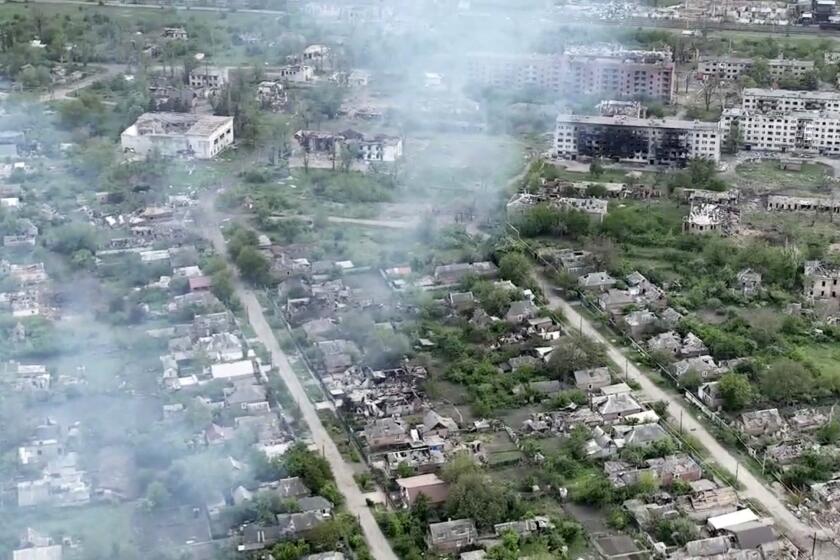Space Industry Lifting Off for Europe’s Firms : Meeting: There’s a bullish spirit, as experts collaborate in Paris on satellite data helping them understand and manage deforestation, ozone depletion, climatic changes and natural disasters.
At a time when many of Europe’s companies are scaling back, its booming space industry is looking for new worlds to conquer.
The bullish spirit was evident here this week as European space officials launched International Space Year.
Experts from around the world are to collaborate in 1992 on satellite-provided data that will help them understand and manage ozone depletion, deforestation, climatic changes and natural disasters.
Such cooperation is likely to be a further boost to Europe’s satellite industry, a thriving business that has already captured 80% of the world commercial satellite market.
Arianespace, the commercial branch of the European Space Agency, is the world’s biggest launcher of commercial satellites. It carried out a record eight launches in 1991, sending up 11 satellites.
Last year was “a vintage year, very positive,” Arianespace President Charles Bigot said.
International Space Year, launched Tuesday at the Paris Observatory, brings together 29 space agencies around the world and several affiliate members, including the United Nations.
Participating agencies will jointly carry out and share data from projects ranging from studies of the Earth’s stratosphere and of tropical forests to the use of satellite-based lasers for monitoring ocean temperatures and deserts.
“We will use space to understand the complex phenomenon of development of climate differences in the environment,” said Luciano Guerriero, president of the Italian Space Agency.
Germany will hold a European space conference in March focusing on use of space-based information for environmental protection and resource management, said Wolfgang Grillo, deputy director of the German Space Agency.
Europe’s biggest project is the European Remote Sensing Satellite, ERS-1, launched in July, European Space Agency Director Jean-Marie Luton said at the presentation.
“Data is acquired in all weather, both day and night, and its microwave instruments make it a particularly powerful tool for the purpose of environmental monitoring,” Luton said.
Bigot of Arianespace said his firm added two new clients last year--Mexico and Thailand--and won 10 of the 12 contracts to launch satellites that were presented on the world market.
Sales this year are expected to be the equivalent of $1.1 billion, with a profit of $24 million, up slightly from last year, he said.
More to Read
Start your day right
Sign up for Essential California for news, features and recommendations from the L.A. Times and beyond in your inbox six days a week.
You may occasionally receive promotional content from the Los Angeles Times.






